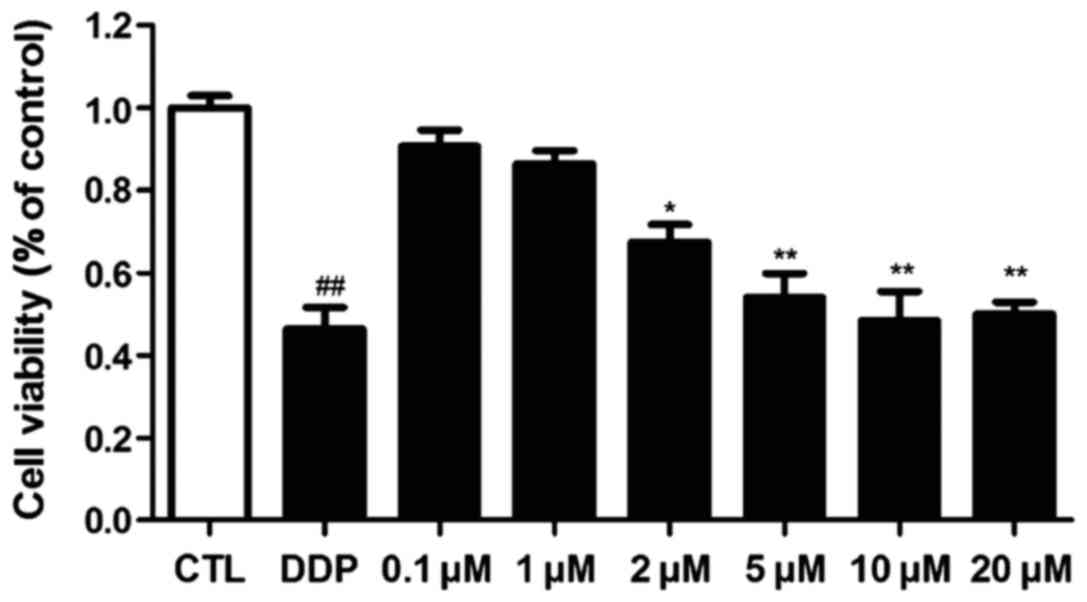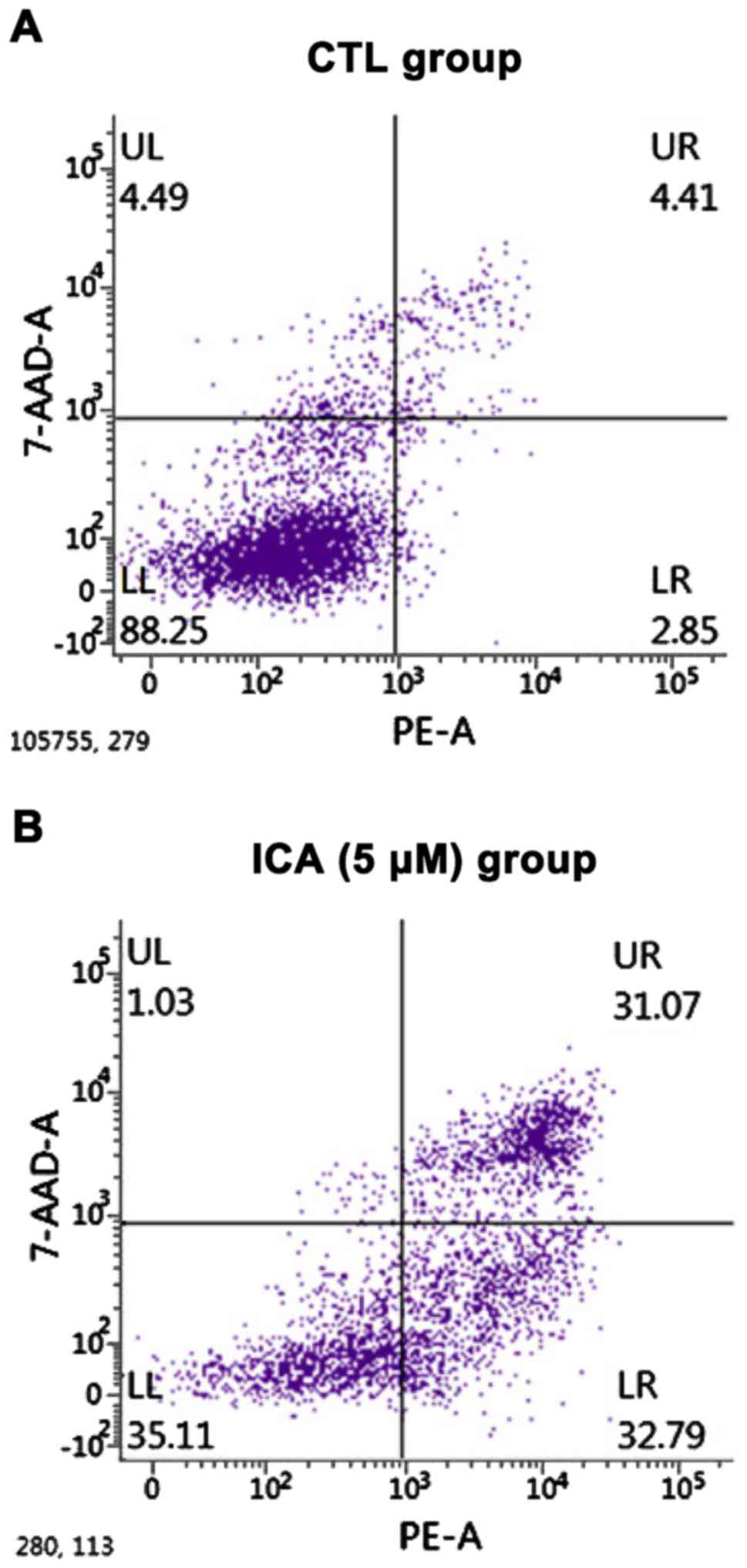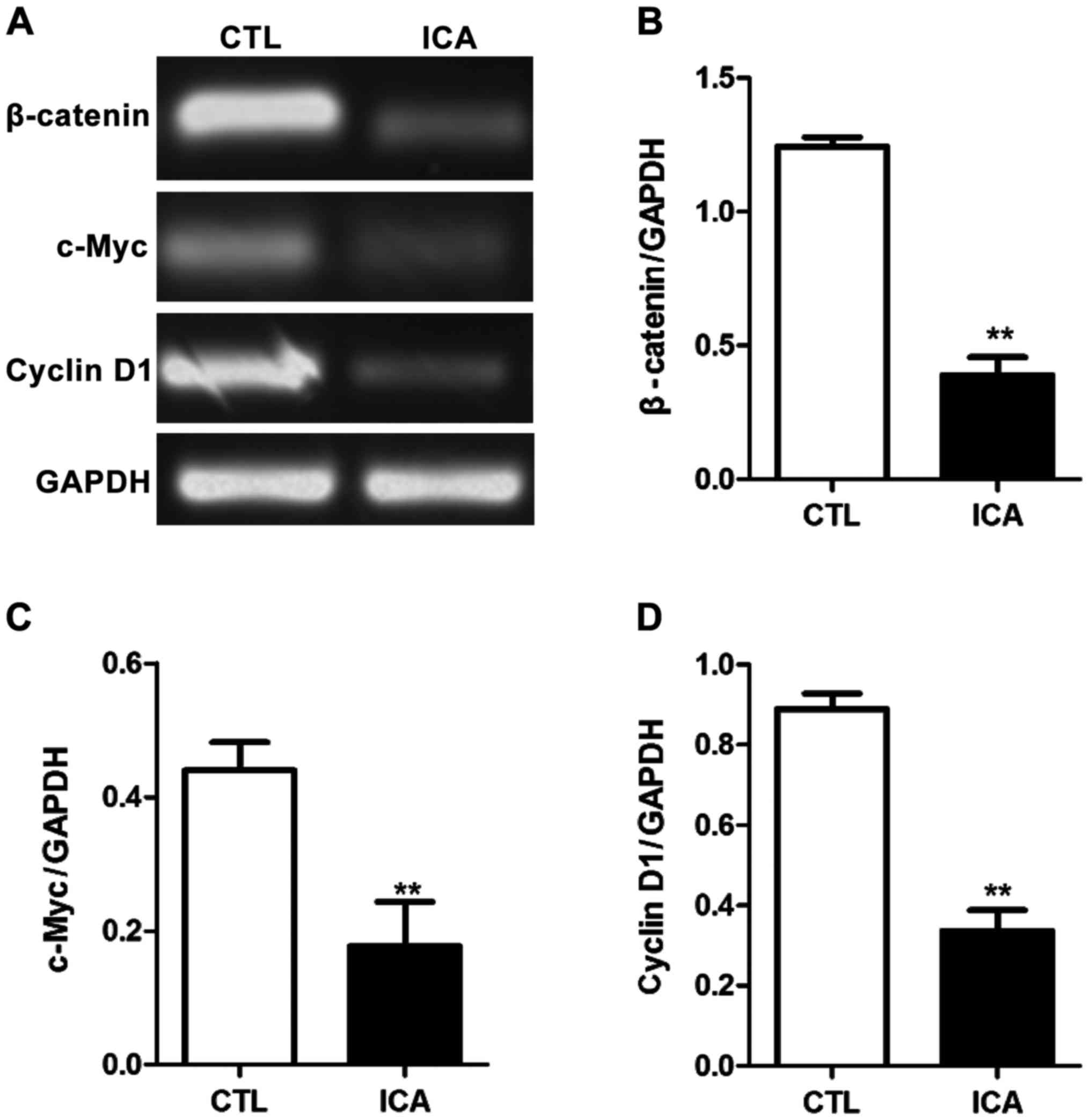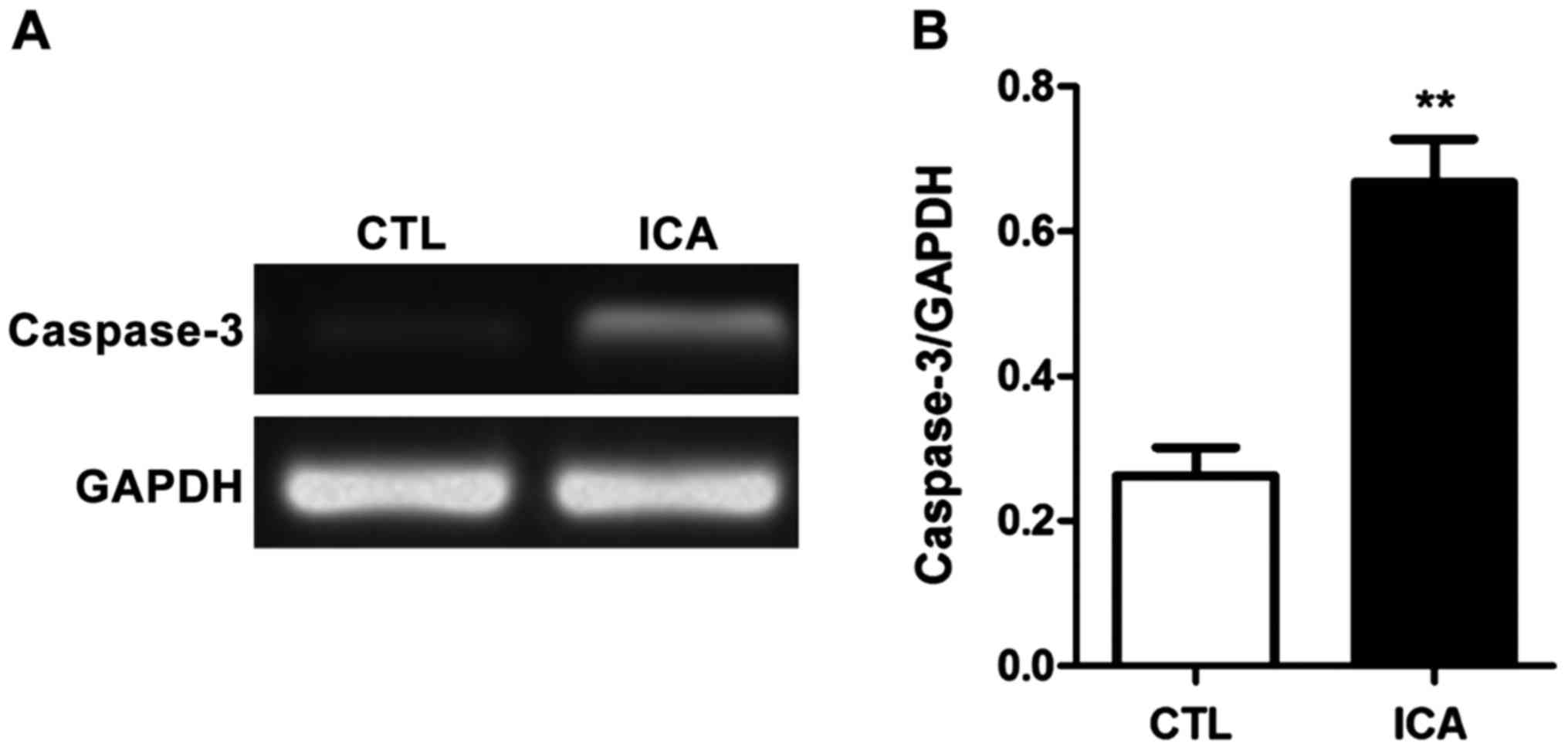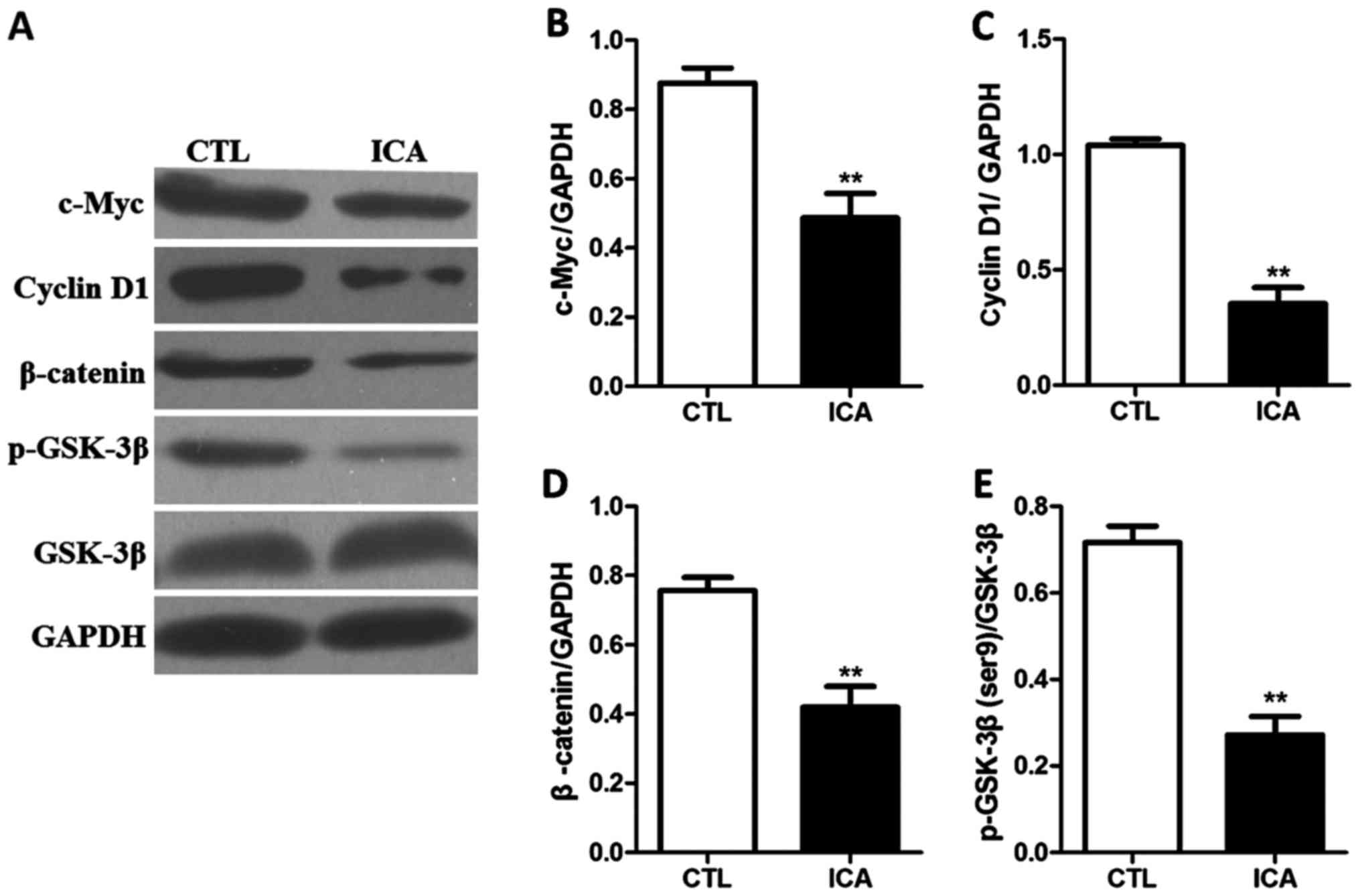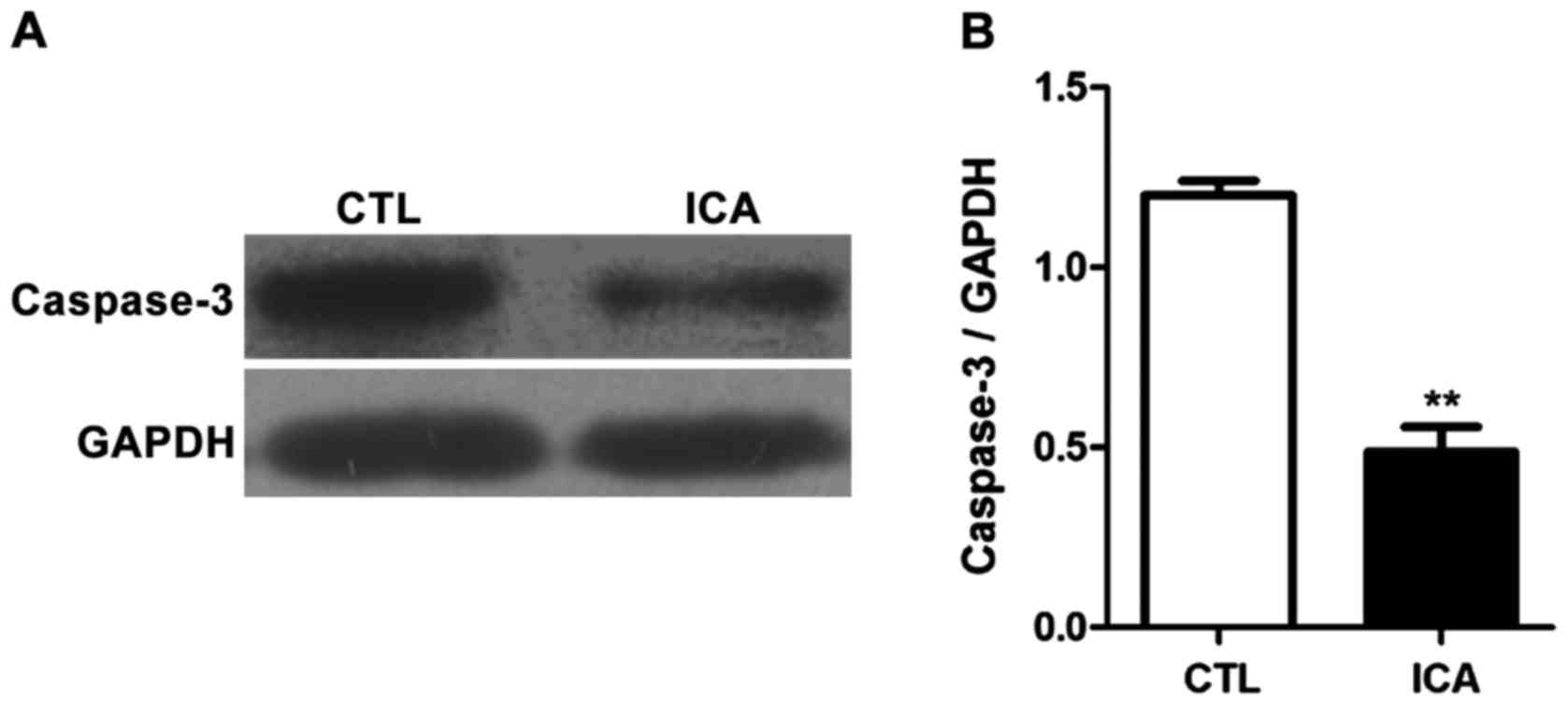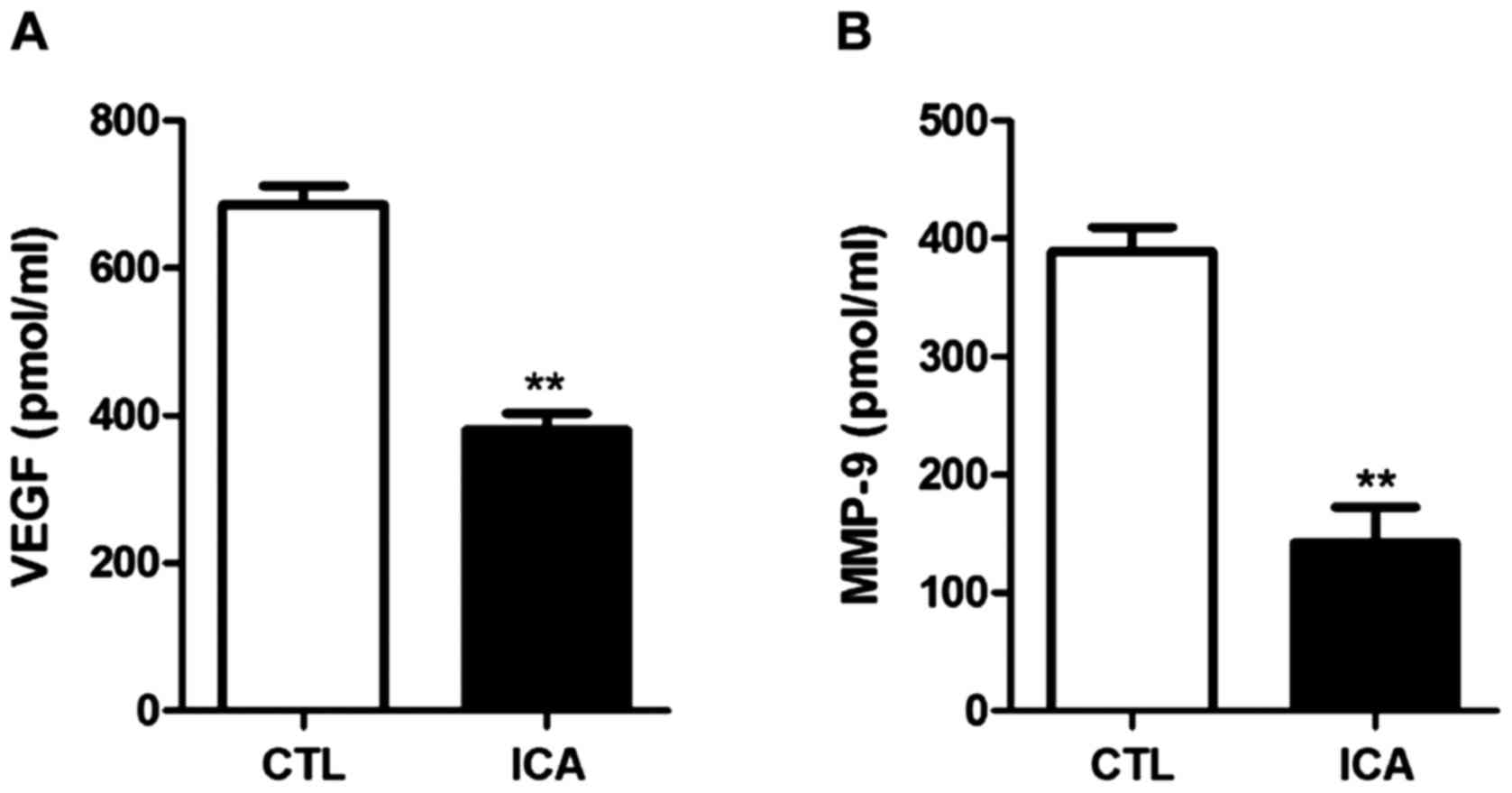|
1
|
Shimizu T, Kido A, Honoki K, Murata K,
Fujii H, Higuchi B, Ishihara T, Takeshita Y, Shima M, Yajima H, et
al: A successful reconstruction using a frozen autograft and a
pedicled latissimus dorsi flap after a S12345B shoulder girdle
resection in a patient with osteosarcoma. J Reconstr Microsurg.
28:155–159. 2012. View Article : Google Scholar : PubMed/NCBI
|
|
2
|
Qiu Q, Jiang J, Lin L, Cheng S, Xin D,
Jiang W, Shen J and Hu Z: Downregulation of RSK2 influences the
biological activities of human osteosarcoma cells through
inactivating AKT/mTOR signaling pathways. Int J Oncol.
48:2508–2520. 2016. View Article : Google Scholar : PubMed/NCBI
|
|
3
|
Hurley C, McCarville MB, Shulkin BL, Mao
S, Wu J, Navid F, Daw NC, Pappo AS and Bishop MW: Comparison of
(18) F-FDG-PET-CT and bone scintigraphy for evaluation of osseous
metastases in newly diagnosed and recurrent osteosarcoma. Pediatr
Blood Cancer. 63:1381–1386. 2016. View Article : Google Scholar : PubMed/NCBIPubMed/NCBI
|
|
4
|
Waresijiang N, Sun J, Abuduaini R, Jiang
T, Zhou W and Yuan H: The downregulation of miR 125a 5p functions
as a tumor suppressor by directly targeting MMP 11 in osteosarcoma.
Mol Med Rep. 13:4859–4864. 2016. View Article : Google Scholar : PubMed/NCBI
|
|
5
|
Ma Q, Zhang Y, Liu T, Jiang K, Wen Y, Fan
Q and Qiu X: Hypoxia promotes chemotherapy resistance by
down-regulating SKA1 gene expression in human osteosarcoma. Cancer
Biol Ther. 18:177–185. 2017. View Article : Google Scholar : PubMed/NCBI
|
|
6
|
Li H, Yuan Y, Zhang Y, Zhang X, Gao L and
Xu R: Icariin inhibits AMPK-dependent autophagy and adipogenesis in
adipocytes in vitro and in a model of Graves' orbitopathy. Front
Physiol. 8:452017.doi: 10.3389/fphys.2017.00045. PubMed/NCBI
|
|
7
|
Su YS, Fan ZX, Xiao SE, Lin BJ, Miao Y, Hu
ZQ and Liu H: Icariin promotes mouse hair follicle growth by
increasing insulin-like growth factor 1 expression in dermal
papillary cells. Clin Exp Dermatol. 42:287–294. 2017. View Article : Google Scholar : PubMed/NCBI
|
|
8
|
Xiao HB, Sui GG and Lu XY: Icariin
improves eNOS/NO-pathway to prohibit the atherogenesis of
apolipoprotein E null mice. Can J Physiol Pharmacol. 95:625–633.
2017. View Article : Google Scholar : PubMed/NCBI
|
|
9
|
Qian ZQ, Wang YW, Li YL, Ling-Zhu Li YQ
and Yang DL: Icariin prevents hypertension-induced cardiomyocyte
apoptosis through the mitochondrial apoptotic pathway. Biomed
Pharmacother. 88:823–831. 2017. View Article : Google Scholar : PubMed/NCBI
|
|
10
|
Zhang Y, Yin L, Zheng N, Zhang L, Liu J,
Liang W and Wang Q: Icariin enhances remyelination process after
acute demyelination induced by cuprizone exposure. Brain Res Bull.
34:713–725. 2016.
|
|
11
|
Zhang S, Feng P, Mo G, Li D, Li Y, Mo L,
Yang Z and Liang D: Icariin influences adipogenic differentiation
of stem cells affected by osteoblast-osteoclast co-culture and
clinical research adipogenic. Biomed Pharmacother. 88:436–442.
2017. View Article : Google Scholar : PubMed/NCBI
|
|
12
|
Brennecke P1, Arlt MJ, Muff R, Campanile
C, Gvozdenovic A, Husmann K, Holzwarth N, Cameroni E, Ehrensperger
F, Thelen M, et al: Expression of the chemokine receptor CXCR7 in
CXCR4-expressing human 143B osteosarcoma cells enhances lung
metastasis of intratibial xenografts in SCID mice. PLoS One.
8:e740452013. View Article : Google Scholar : PubMed/NCBI
|
|
13
|
Mamie Yu, Selvaraj Suresh K..Liang-Chu MM,
Aghajani S, Busse M, Yuan J, Lee G, Peale F, Klijn C, et al: A
resource for cell line authentication, annotation and quality
control. Nature. 520:307–3112015.
|
|
14
|
Dang H, Wu W, Wang B, Cui C, Niu J, Chen
J, Chen Z and Liu Y: CXCL5 plays a promoting role in osteosarcoma
cell migration and invasion in autocrine- and paracrine-dependent
manners. Oncol Res. 25:177–186. 2017. View Article : Google Scholar : PubMed/NCBI
|
|
15
|
Zhang S, Liu L, Lv Z, Li Q, Gong W and Wu
H: MicroRNA-342-3p inhibits the proliferation, migration, and
invasion of osteosarcoma cells by targeting astrocyte-elevated
gene-1 (AEG-1). Oncol Res. 8:435–447. 2017.
|
|
16
|
Xu M, Zhang YY, Wang HF and Yang GS: The
expression and function of miRNA-106 in pediatric osteosarcoma. Eur
Rev Med Pharmacol Sci. 21:715–722. 2017.PubMed/NCBI
|
|
17
|
Rushing CJ, Rogers DE, Spinner SM and
Gajzer DC: A case report of heel pain mimicking plantar fasciitis
and osteosarcoma: A unique presentation of a Nora's lesion. J Foot
Ankle Surg. 56:670–673. 2017. View Article : Google Scholar : PubMed/NCBI
|
|
18
|
Li W, Wang L, Chu X, Cui H and Bian Y:
Icariin combined with human umbilical cord mesenchymal stem cells
significantly improve the impaired kidney function in chronic renal
failure. Mol Cell Biochem. 428:203–212. 2017.
|
|
19
|
Zhang L, Wang XZ, Li YS, Zhang L and Hao
LR: Icariin ameliorates IgA nephropathy by inhibition of nuclear
factor kappa b/Nlrp3 pathway. FEBS Open Bio. 7:54–63. 2016.
View Article : Google Scholar : PubMed/NCBI
|
|
20
|
Hartemayer R, Kuo C and Kent P:
Osteosarcoma metastases with direct cardiac invasion: A case report
and review of the pediatric literature. J Pediatr Hematol Oncol.
39:188–193. 2017. View Article : Google Scholar : PubMed/NCBI
|
|
21
|
Sareddy GR, Kesanakurti D, Kirti PB and
Babu PP: Nonsteroidalanti-inflammatory drugs diclofenac and
celecoxib attenuatesWnt/β-catenin/Tcf signaling pathway in human
glioblastomacells. Neurochem Res. 38:2313–2322. 2013. View Article : Google Scholar : PubMed/NCBI
|
|
22
|
Chen G, Wang C, Wang J, Yin S, Gao H,
Xiang LU, Liu H, Xiong Y, Wang P, Zhu X, Yang LI and Zhang R:
Antiosteoporoticeffect of icariin in ovariectomized rats is
mediated via the Wnt/β-catenin pathway. Exp Ther Med. 12:279–287.
2016. View Article : Google Scholar : PubMed/NCBI
|
|
23
|
Li R, Dong T, Hu C, Lu J, Dai J and Liu P:
Salinomycinrepressed the epithelial-mesenchymal transition of
epithelialovarian cancer cells via downregulating
Wnt/β-cateninpathway. Onco Targets Ther. 28:328–335. 2017.
|















